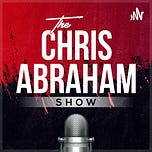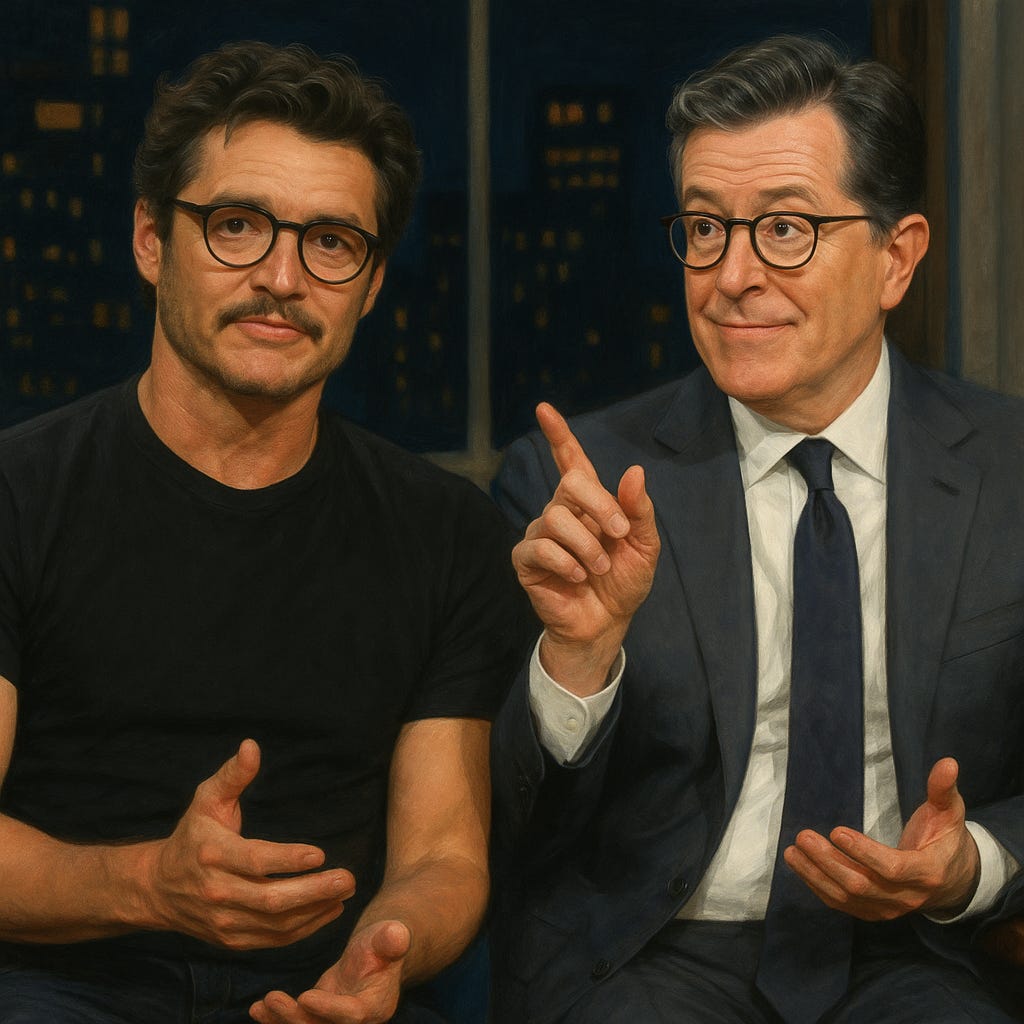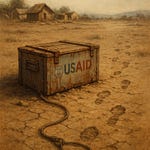There was a time when we convinced ourselves the real conspiracy was hidden behind a velvet rope or an ivory tower. We whispered that the tweedy professors — the tweed with the elbow patches, the footnoted monologues — would footnote us into oblivion, rewriting the old truths until the stoic Bud Light dad found himself alone with nothing to hold but a glossary of things he was no longer allowed to be. Or maybe it would be the “gay agenda” — that phantom playbook muttered about by men who had never once stood backstage in a community theater hallway at midnight. Or maybe it was the deepest whisper of all: the hidden cabal, the cabaret of the so-called powerful, pulling the strings.
But we were looking the wrong way all along.
The real authors were sprawled on the stained carpet outside the black box theater — half-tipsy on Smirnoff Ice pilfered from someone’s older sister, wrapped in thrift store jackets that smelled like mothballs and talc, eyeliner smudged not for fashion but from weeping during their own monologues. They were the ones who stayed up all night taping cardboard trees and repainting the tragic hero’s mask. They were the ones who didn’t care who saw them touch, hug, cry, rest their heads on one another’s shoulders in a sloppy tangle of limbs that smelled like old makeup and teenage panic.
They were the theater kids. And they were the real conspirators.
If the past hundred years have taught us anything about culture, it’s that the ones who hold the script hold the world. The historians may get the final word, but it’s the dramatists, the playwrights, the improv geeks, the show choir flitty floofs, the garage band weirdos and the hair band peacocks who slip into our dreams first. They are the ones who feed us the lines we whisper to lovers, to enemies, to ourselves when we stand in front of the mirror flexing and wondering if we measure up to the idea of “sexy” we’ve been sold.
And what an idea that is — always shifting, never done.
In the ‘60s and ‘70s, the peacock man was king. Mick Jagger’s hips like switchblades. Bowie’s thin white hands clasping at new genders. Prince — crowned flitty floof of all time — in a purple blouse and high-heeled boots, so obviously, so terrifyingly beautiful that no one dared question whether he was “man enough.” He was simply more. More than you. More than her. More than any shirtless brute who could bench press a car but could never sway the air like Prince could with a single wink.
Then came the hair bands of the ‘80s — all teased hair and leather pants split at the seams, mascara-smudged floofs who strutted in spandex and lace gloves, a kind of reckless peacockery that made the flitty floof a permanent resident of the American libido. They were not delicate. They were not soft in the way the word gets used now. They were wild, chaotic, horny on every amp turned to 11.
By the ‘90s, the body disappeared into heroin chic. Desire slithered into absences. Kurt Cobain in a moth-eaten cardigan was a flitty floof in ruin: beautiful because he was breakable. The rock star’s power was to vanish in front of you while you watched — bones visible, eyes like bruises.
In the early 2000s, the “metrosexual” emerged — a watered-down flitty floof for the suburbs. The straight guy who used product, plucked stray hairs, bought $90 face scrub, and maybe even owned a man-bag. It was a costume, but it stuck. The seed was planted: a man could borrow the shine from the flitty floof wardrobe without losing his claim to Dadhood.
And then — the boulder shoulder arrived. The Hemsworths and the Jackmans and the Supermen so shredded you could see each vein crawling under their skin like highlighter ink. The irony, of course, is that this hyper-jacked, 3% body fat superhero aesthetic began its life in the gay underground. Once upon a time, you only saw that physique on the covers of muscle mags stashed in backrooms. The old Bud Light dad didn’t live at the gym; his strength was in his silence, his hands, the way he showed up every day. Now a man must be stoic and tearful, tender and terrifyingly veined, all at once. The theater kid didn’t ask for this. He just slipped you the lines to make you want it.
And just offstage waits the soft Zaddy: the counter to the boulder shoulder. The protective bear with a wink. The slutty dad who calls you “baby” in a TikTok caption and makes the internet melt. Pedro Pascal lives here — equal parts big brother and gentle guardian. Stephen Colbert tries — the safe Zaddy for people who prefer their soft to be predictable, a flitty floof in dad glasses dancing at the edges of late-night jokes. Sometimes it works. Sometimes it reeks of “fetch.” The Mean Girls rule holds: you can’t force a vibe.
But the truth is this: none of this is really new.
The theater kids always knew there was no single shape to sexy. The flitty floof is not a mold you must pour yourself into. It is an invitation. One day the flitty floof is Prince in lace. Another day it is Poison on stage. Another day it is the heroin chic blur of Kurt. Another day it is the safe nerd with thick glasses reading your secrets like bedtime stories. And sometimes, yes, it is the Bud Light dad standing in the shadows, unflinching, loving you without a word.
It was never about conversion. The original covenant was always permission. The tree people didn’t demand the stoic men become willows. They just wanted to prove you could stand still and sway at the same time — and not be ashamed of the motion.
So here I am: not gay, but forever grateful to those who cracked open the closet so the flitty floofs of every stripe could claim our own corner. I do not say it with scorn. I say it as a word that feels like home: I am a flitty floof. A grown-up theater kid, soft around the edges, a bag addiction, a love of the stage, a taste for the scent of a story just beginning. You can keep your closets — I’ll keep my softness. And you can have yours too, if you ever want it.
The culture war was never about the professors or the cabal. It was always about the drama kids and the band kids and the stoners and the hair band peacocks and the soft stoics who held the scripts when no one else cared to read them. They are the ones who keep writing the next line. They will hand it to you, if you want it. They will let you stand under the spotlight, if you’re ready. They will never make you stay if you’re not.
You don’t have to flit. You don’t have to floof.
But if you ever do, you should know: the stage has been waiting for you since before you knew you needed it.
Curtain.
APPENDIX — THEATER KID KULTURE GLOSSARY
A totally serious OED for our neologism, our tribe, and every shade of soft that refuses to be forgotten.
Theater Kids (n.)
The primordial tribe. The ancient holders of touch, space, rawness, and infinite side-stage gossip. They played trees and they played kings and they cried when no one asked them to. They wrote your favorite lines while you were asleep.
Flitty Floof (n.)
[Neologism; circa 2024]
A word minted in the author’s own mouth, on the back of every stage where the theater kid lurked. An affectionate, intentionally silly self-badge for the open-hearted, lightly dramatic, perfectly watchful soft boy/girl/being who drifts through life with a little flourish and a lot of permission to feel. It is never a slur. It is never forced. It is claimed.
Plural: flitty floofs, flitty flooves (poetic, archaic, or when extra drunk at the cast party).
Zaddy (n.)
A protective, bear-leaning version of the flitty floof grown up — the dad energy with just enough bedroom voice to call himself “slutty” and get away with it. Equal parts shelter and edge. Sometimes a PR strategy. Sometimes the real thing.
Bud Light Dad (n.)
The old standard. The stoic father who showed you his love in acts, not lines. Flannel shirts, caps, and the quiet power that only comes from never demanding the spotlight.
Boulder Shoulder Holder (n.)
A modern archetype: the superhero whose body is so engineered it’s practically uninhabitable. Once coded queer, now the gold standard of action masculinity. Hemsworth, Jackman, the entire MCU casting spreadsheet. Unreal, but unforgettable.
Hair Band Flitty Floof (n.)
See also: Peacock Rocker. A flamboyant, mascara-smudged emissary of desire who made the 1980s stages the world’s largest cast party. Lace gloves optional.
Heroin Chic (n.)
The ghostly ‘90s anti-boulder: all bones, cardigan holes, and whispered power. Cobain: the flitty floof undone.
Metrosexual (n.)
A flitty floof in suburban drag. 2000s spin cycle. Groomed. Plucked. Safe. Unwilling to fully claim the word but grateful for the permission.
Male Gaze / Male Gays (n.)
Two sides of the same lens. The way the queer male imagination has shaped how women and men alike see “sexy.” Sex and the City was their epic. Carrie and the girls were their dolls. Nothing insulting — just the truth of the filter.
Tree People (n.)
The theater kids who auditioned for the trees, rocks, wind — and made you feel something anyway. The oldest flitty floofs in the orchard.
Fetch (n.)
A vibe you can’t force. A script that dies the moment you push too hard. Mean Girls said it best: “Stop trying to make fetch happen.” Long live the flitty floof who knows when to let a trend stay in the wings.
May this be your stone soup. May you taste every note in the broth.
The theater kids still hold the pen.
The flitty floof still holds the mirror.
Step on stage when you’re ready.
Curtain.
The Stage, The Flitty Floofs, And The Bud Light Dad
The provided text explores how "flitty floofs," a term for flamboyant and emotionally expressive individuals originating from theater culture, have become influential in shaping modern American culture, contrasting them with the more stoic "Bud Light dads." It argues that the "Zaddy" archetype, embodying a blend of protective and "slutty" characteristics, represents a mainstreamed version of this "flitty floof" sensibility. The author suggests that this cultural shift is not a conspiracy but a natural outcome of those on "stage" writing the "script" of society, leading to a new "male gaze" that prioritizes soft, performative masculinity. However, the text also cautions against the compulsory adoption of this persona, advocating for the acceptance of all forms of identity, including the quiet strength of the "Bud Light dad," so that individual authenticity is preserved beyond prescribed cultural roles.













Share this post